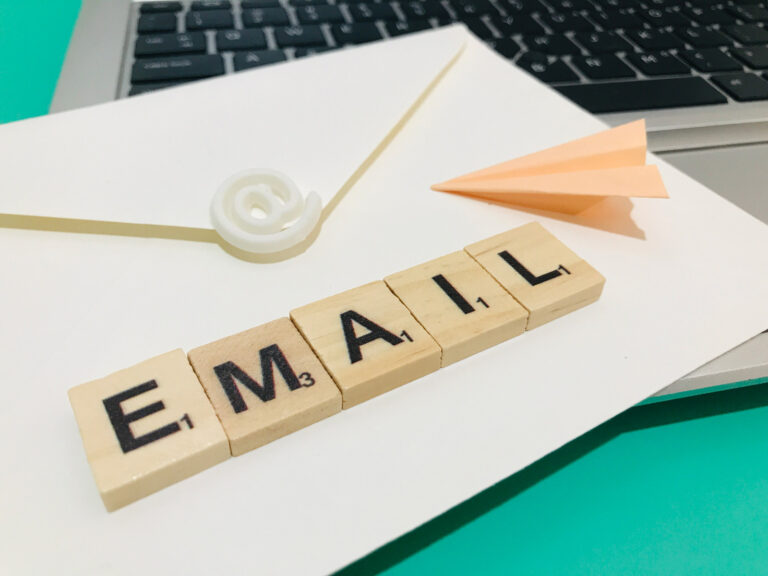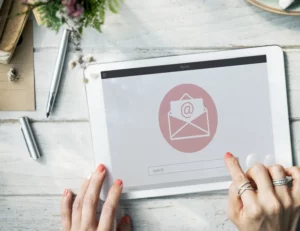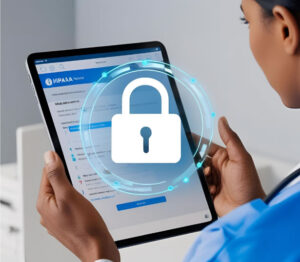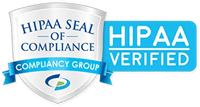Data integrity in healthcare is essential for accurate, consistent, and reliable patient records. It ensures that sensitive information remains complete and untampered, supporting quality care and informed decisions. HIPAA compliance plays a critical role in this process, particularly through the use of secure, encrypted email systems. These tools help prevent unauthorized access and protect patient privacy, allowing healthcare providers to maintain trust and meet regulatory standards.
Explanation and Significance
Data integrity means keeping information accurate and reliable. In healthcare, it ensures patient records are correct and consistent. HIPAA-compliant emails play a key role in maintaining this integrity. They use encryption to protect sensitive data from being altered. This security helps keep patient information safe and trustworthy.
When data is accurate, doctors make better decisions. Correct information leads to proper diagnoses and treatments, which improve patient outcomes and overall care quality. If data integrity is compromised, it can lead to errors. HIPAA compliance ensures that patient information remains untouched and reliable. It’s essential for delivering adequate healthcare.
HIPAA sets standards for handling patient data securely. It requires the use of secure email systems to protect information. These systems prevent unauthorized access and changes. By following HIPAA rules, healthcare providers maintain data integrity. This compliance ensures that patient trust and privacy are upheld.
Key Requirements Related to Data Protection
HIPAA sets rules to keep patient data safe. It requires encryption to protect emails, and only authorized users should access this information. These measures prevent data from being changed or leaked. By following these guidelines, healthcare providers ensure data stays accurate and confidential.
HIPAA compliance is crucial for maintaining data integrity. It ensures that patient records are consistent and accurate. Secure email systems help prevent unauthorized changes. This protection is vital for making sure diagnoses and treatments are correct. With HIPAA, healthcare providers can trust the data they use.
Common Uses of Email for Patient Communication and Data Exchange
Email is vital in healthcare for quick communication. Doctors send test results and appointment reminders; patients can ask questions or get advice. This makes managing care more efficient. Emails help keep everyone informed and connected. They’re a convenient way to exchange important health information.
Despite its convenience, email has risks. Unsecured emails can lead to data breaches, and hackers might access sensitive patient information, harming patient trust and privacy. It’s crucial to use secure methods to prevent unauthorized access. Being aware of these risks helps protect data integrity.
Encryption is key to securing emails. It scrambles the content so only the recipient can read it, protecting against unauthorized changes and leaks. HIPAA-compliant email systems enforce encryption. By using these systems, healthcare providers ensure data stays accurate and safe, maintaining trust and supporting excellent patient care.
Email is a key tool for communication in healthcare. Doctors use it to share test results and treatment plans. Secure, HIPAA-compliant email protects this information. Keeping data safe supports high-quality patient care. This approach builds trust between patients and healthcare providers.
How Encryption Ensures Data Remains Intact
Encryption plays a crucial role in email security. It transforms your email content into a secret code. This code keeps your data private and intact. Only the intended recipient can unlock and read the message. By using encryption, healthcare providers protect sensitive information. This helps maintain data integrity and trust.
Secure emails prevent unauthorized access. Encryption ensures that only approved users can see the content, stopping hackers from reading or changing vital information. By protecting against tampering, email systems keep data accurate. This security is essential for building patient confidence and ensuring quality care.
Authentication adds another layer of protection. It verifies the identity of both senders and receivers, ensuring that the communication is genuine. Authentication methods include passwords and verification codes. These tools help confirm who is accessing the data. Together, they safeguard emails and support data integrity.
Verifying Sender and Receiver Identities
HIPAA-compliant emails ensure that only the right people communicate. Verification processes check who sends and receives each email. This keeps information genuine and secure. By confirming identities, healthcare providers prevent unauthorized access. This step helps maintain the trust and reliability of shared data.
Knowing the data’s source is vital to keeping it secure. HIPAA-compliant email systems verify the origin of messages, stopping false information from entering the system. Being sure of the data’s source enhances accuracy and ensures decisions are made based on reliable information.
Limiting who can access data is crucial. Access controls ensure only authorized individuals reach sensitive information. Permissions define what each person can see or do. These measures protect against data breaches and accidental changes. By enforcing strict controls, data integrity is preserved.
Restricting Email Access to Authorized Personnel
HIPAA-compliant emails ensure that only authorized personnel can access sensitive information. This means setting strict permissions. By limiting access, healthcare providers prevent unauthorized views. This control helps safeguard patient privacy. It’s a key step in ensuring data stays secure and intact.
Controlled access keeps data accurate and reliable. By restricting who can see or change information, errors are minimized. This careful management supports data integrity. It ensures that decisions are based on correct and trustworthy data. Healthcare providers depend on this reliability for quality care.
Audit trails track who accesses and changes data. They offer a detailed record of email interactions. Monitoring these logs helps identify any suspicious activity. By keeping a close watch, healthcare organizations can quickly address issues. This ongoing vigilance is crucial for maintaining data integrity.
Tracking Email Interactions to Ensure Accountability
HIPAA-compliant email systems track all interactions. This tracking helps ensure accountability. Each action creates a record of who accessed or changed data. By keeping detailed logs, providers can trace back any issues. This process helps maintain transparency and trust. It ensures that everyone follows proper procedures.
Monitoring email activity is crucial. It helps detect any unauthorized changes or access. Alerts can notify staff of suspicious behavior. By catching these early, providers can prevent potential breaches. This vigilance helps protect patient information, keeping data secure and unaltered.
Preventing Data Loss
Data loss can disrupt healthcare services. HIPAA-compliant email systems help prevent this. They use secure methods to protect information, such as encrypted emails, which ensure that data stays safe during transit. Regular system checks catch issues before they cause problems, keeping patient information intact.
Accidental data loss can happen easily. To avoid this, train staff on best practices. Always double-check email addresses before sending. Limit who can access sensitive information. Use secure platforms that provide encryption. Simple steps like these protect important data from being lost.
Regular backups are essential for data safety. They ensure information isn’t lost if something goes wrong. Secure storage protects backups from unauthorized access. Backups allow quick recovery of data when needed. With these precautions, healthcare providers maintain data consistency. This reliability supports excellent patient care.
Ensuring Consistent Data Terms and Definitions Across Communications
Clear communication needs consistent terms. HIPAA-compliant emails help achieve this. Using the same language avoids confusion, keeps everyone informed, and reduces errors. Consistency in data ensures better patient care. This approach builds trust in healthcare communication.
Staying current with data is essential. Tools like shared calendars and document systems help. Regular updates ensure everyone has the same information. These practices keep data synchronized across teams. They support smooth and accurate communication.
Training staff is key to protecting data. Regular sessions teach best practices and HIPAA guidelines. Awareness helps staff spot and avoid risks. Educated staff make better decisions about data security. This training helps keep patient information safe and private.
Educating Healthcare Employees on HIPAA Best Practices
Training staff is key to protecting data. Employees need clear guidance on HIPAA rules. Regular workshops help reinforce this knowledge. Interactive sessions make learning engaging. Informed staff make fewer mistakes with patient data. This education ensures a secure healthcare environment.
A culture focused on compliance is vital. Encourage open talks about data protection. Recognize staff who follow best practices. This builds a sense of responsibility. When everyone values integrity, security strengthens. A positive culture ensures ongoing commitment to HIPAA rules.
Checking vendors is crucial for compliance. Ensure they follow HIPAA standards, too. Regular audits help verify their practices. Working with compliant vendors keeps shared data safe. This partnership maintains the integrity of patient information. Choosing the right vendors supports secure communication.
Final Thoughts
HIPAA-compliant email plays a vital role in protecting data integrity. It ensures that patient information remains secure and accurate. Encryption and secure access prevent unauthorized changes. By following HIPAA guidelines, healthcare providers build trust and deliver better care. These practices keep data reliable and private.
Using HIPAA-compliant email fosters a culture of security. It minimizes the risk of data breaches and errors. Regular staff training and vendor assessments enhance protection. Encouraging best practices across all levels helps maintain data integrity. This approach supports a safe and efficient healthcare environment.
In summary, prioritizing HIPAA compliance is essential. It protects patient information and maintains consistency in records. By committing to these standards, healthcare providers ensure a high level of care. Trust and data integrity go hand in hand, making HIPAA compliance a cornerstone of modern healthcare communication.






